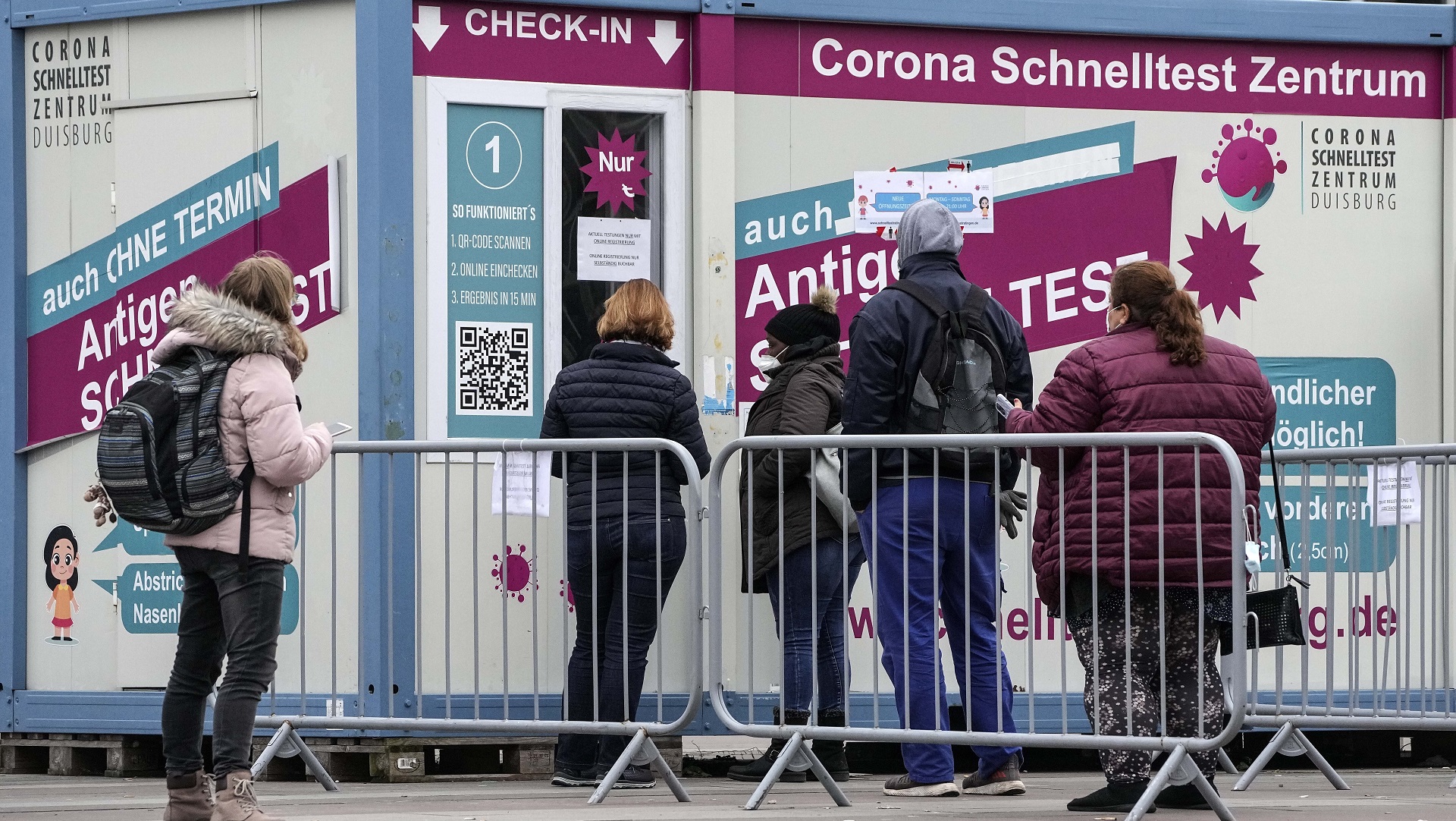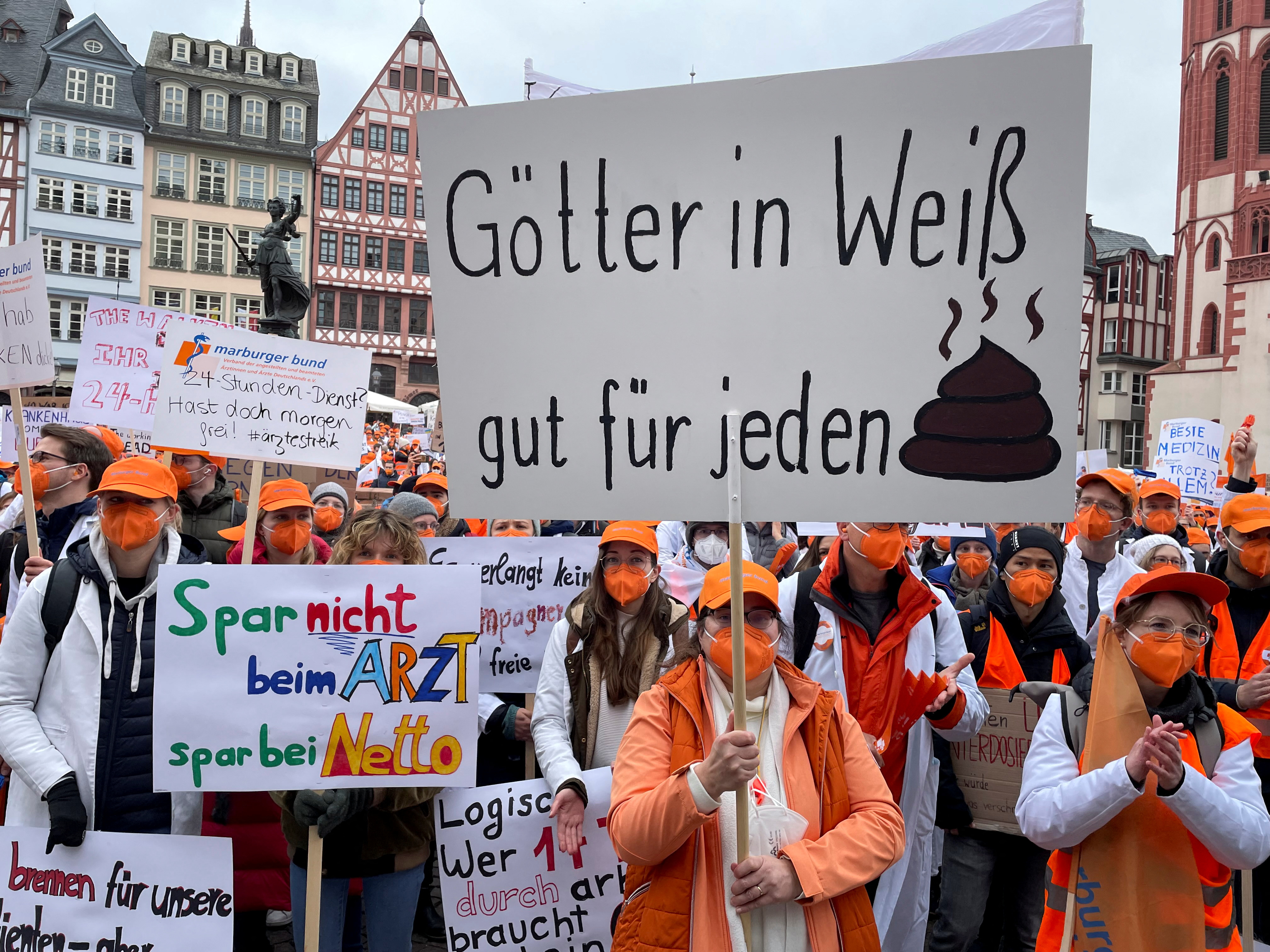:quality(85)/cloudfront-us-east-1.images.arcpublishing.com/infobae/GYK7RAAKI5GGJEIZYA2O5Q2F2A.jpg 420w)
Germans are witnessing the lifting of restrictions due to COVID starting this Saturday, while the incidence begins to decline, although opposition and health organizations continue to criticize the measure as premature.
With the end of the transition phase, the “Länder” (federal states) will only be allowed to prescribe measures known as “basic protection”, which include the compulsory wearing of masks in health centres and means of transport and regular testing in certain spaces such as education.
Beyond these minimums, from Sunday most Germans will be able to use shops without a mask or go to restaurants and cinemas without having to show a vaccination certificate or a negative test, a relaxation that the city-state of Berlin has already introduced this Friday.
However, the Minister of Health, Karl Lauterbach, urged citizens to continue to use the mask in shops and other indoor spaces out of responsibility, to protect themselves “and others”.
“I will do it for the time being and I recommend it to all customers,” she wrote on her Twitter account, calling the behavior of former Chancellor Angela Merkel, photographed with a mask, as “exemplary” despite the fact that it is no longer mandatory.
The Infection Protection Act passed in March foresees that districts or regions with a very high incidence can be declared “focus” with stricter measures, a regulation that has so far only been used by the Mecklenburg-Western Pomerania region and the city of Hamburg, both in the north of the country.
Several of the “Länder” ruled by the conservative opposition nevertheless claim the ability to impose tougher restrictions and fought until the last moment to be able to extend the restrictions, although they eventually accepted the line of the central government.
Lower the incidence
The Robert Koch Institute of Virology (RKI) has passed the peak of the sixth wave of COVID and according to its data the seven-day cumulative incidence, which this Saturday stood at 1,531.5 new infections per 100,000 inhabitants, is gradually decreasing.
In the last 24 hours there were 196,456 new infections and 292 deaths related to COVID, although experts believe that many cases are not detected and that the real figure could be much higher.

The hospitalization rate, in any case, falls, but many health centers claim to be at the limit of their capacity and have to delay planned operations, not because of the number of patients but because of the high casualties among staff.
In this regard, the Minister of Health and the RKI proposed this week to reduce the duration of isolation of infected persons to just five days, an idea that, like the easing of restrictions, has been the target of harsh criticism by organizations in the health sector and other sectors.
Unprotected vulnerable groups
“It's crazy to call people infected with mild symptoms to work,” said Eugen Brysch, president of the Patient Protection Foundation, in an interview with the newspaper Neue Osnabrücker Zeitung in which he also advocated the maintenance of the mask in stores.
The head of the Marburger Bund doctors union, Susanne Johna, also called for the latter measure not to be optional in the interior spaces, something she described as a “medical error”, as she told the Redaktionsnetzwerk Deutschland group media today.

In recent days, numerous associations of people who are especially vulnerable due to previous pathologies have reported that the voluntary mask leaves them unprotected when carrying out essential activities such as shopping, particularly in the case of young children who cannot yet cover their mouths.
The criticism has also been joined by teachers' unions, many of whom consider it “premature” and “irresponsible” that the mask is optional in classrooms, even if students are tested three times a week.
On the contrary, there are also those who celebrate the return to “normality”, such as Liberal Party Vice President Wolfgang Kubicki, who pointed out that Germany is lagging behind other European countries in this regard.
Liberals, partners in the Government coalition of which Social Democrats and Greens are also part, had been one of the main drivers of the abandonment of measures such as access restrictions for the unimmunized.
(With information from EFE)
KEEP READING:
